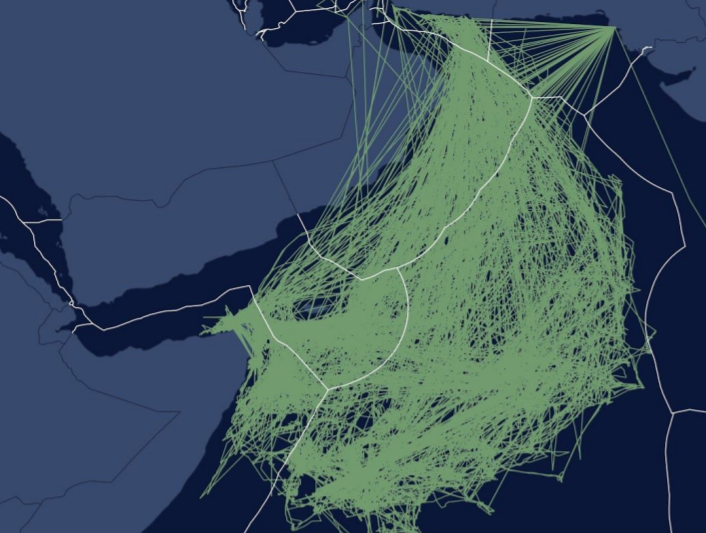ADF STAFF
Somali officials say they’ve identified nearly 200 Iranian fishing crews poaching in Somalia’s territorial waters, threatening the nation’s economic and food security.
In a statement, Somalia’s Ministry of Fisheries and Marine Resources reported it had tracked Iranian fishing boats illegally entering Somalia’s territorial waters between January 2019 and April 2020.
“The presence of the Iranian fleets in Somalia waters remains a longstanding concern of the Federal Republic of Somalia,” Fisheries Minister Abdullahi Bidhan said in the statement. “Illegal fishing will not be tolerated by Somalia.”
Poaching threatens Somalia’s food security, economic development, sovereignty and maritime ecology. Fish is a staple in Somali diets, and up to a third of the country’s 15 million citizens struggle to get food.
Remote sensing by international organizations has identified 112 Iranian fishing vessels and 83 drift nets fishing without permits in Somalia’s exclusive economic zone (EEZ), primarily off the coast of Puntland and Somaliland in the country’s northeast.

Some of those vessels also are fishing close to land in the zone reserved for local Somali fishing crews, the ministry said.
The vessels were tracked using satellite imagery and automatic identification system transponders used to avoid collisions.
Since 2018, Somalia has required all vessels fishing in its waters to get a government license and to report their catch to the Fisheries Ministry. The government estimates Somalia’s coastal fishery to be worth $135 million annually. Somalia’s EEZ covers just over 1 million square kilometers along its 3,200-kilometer coastline.
Bidhan said the government never issued licenses to any of the Iranian boats identified in the tracking project, according to Africa Times.
In an interview with BBC Africa, Bidhan said his government had formally submitted a complaint about a surge of illegal Iranian fishing vessels. Somalia also will seek compensation for illegal fishing over the years, according to the minister.
Somalia cut diplomatic ties with Iran in 2016.
Somalia is part of FISH-i Africa, a consortium of eight East African nations with coastline along the Indian Ocean to control illegal fishing in their waters. Four — the Comoros, Madagascar, Mauritius and the Seychelles — are island nations while the rest are on the mainland from Somalia south to Mozambique.
The Western Indian Ocean is home to plentiful fish resources that provide jobs, support local economies and represent an important food source for the region and the world. However, it also is an illegal fishing hot spot that draws poachers from across the globe to the region’s rich tuna resources, according to FISH-i Africa.
Somalia was able to identify the vessels poaching in its waters by working with Global Fishing Watch and Trygg Mat Tracking. Both groups helped locate vessels based on their transponder IDs, then confirm using satellite imagery.
Duncan Copeland, chief analyst at Trygg Mat, told The Guardian he was already aware of illegal vessels in the region, but the latest research shows “the scale is staggering.”
“We are seeing such large numbers of vessels,” Copeland said. “It is beyond what any management plan can cope with. It’s way too much fishing effort for the region. It’s going to deplete stocks.”

